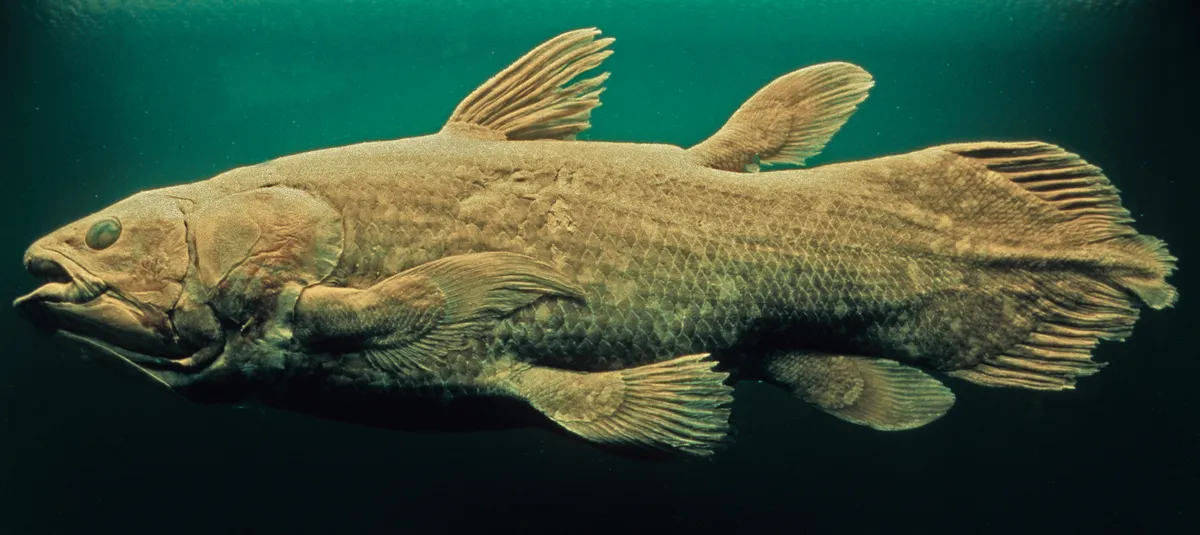The Pokémon universe is made up of over 900 different weird and wonderful creatures. These are often based on plants, animals, and even mythological creatures from our own world.
The connection between the game and the natural world started early. Pokémon was the brainchild of Satoshi Tajiri, who was an avid insect collector as a child – this is cited as inspiration for the “gotta catch 'em all” concept of the game. He was keen to ensure that children could experience the same joy in taxonomy, even in a virtual environment.
Themes of ecological vulnerability, extinction, and climate change have also been woven into the game, as well as an emphasis on the wonder of the natural world. Here are some of our favourite Pokémon-real animal pairings, as well as fascinating facts about the animals themselves.
20 Pokémon characters inspired by real wild animals
1. Dragalge/leafy seadragon (Phycodurus eques)
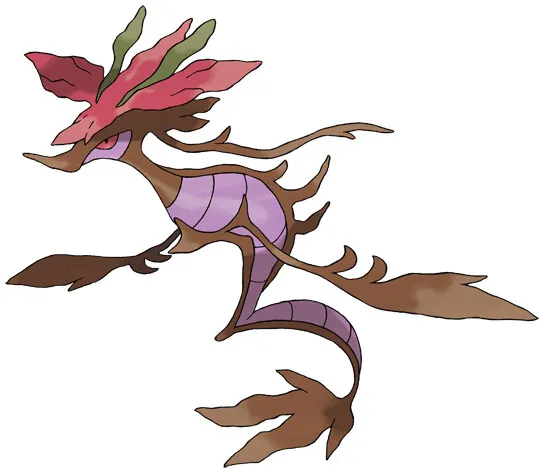
This aquatic character is based on a leafy seadragon (Phycodurus eques), a species of marine fish that is found off the coast of Australia. Although the resemblance is close, unlike the Pokémon, which sprays an impressively corrosive poison, sea dragons are entirely harmless and sedate. They instead avoid predation through their elaborate camouflage which allows them to blend in with floating seaweed.
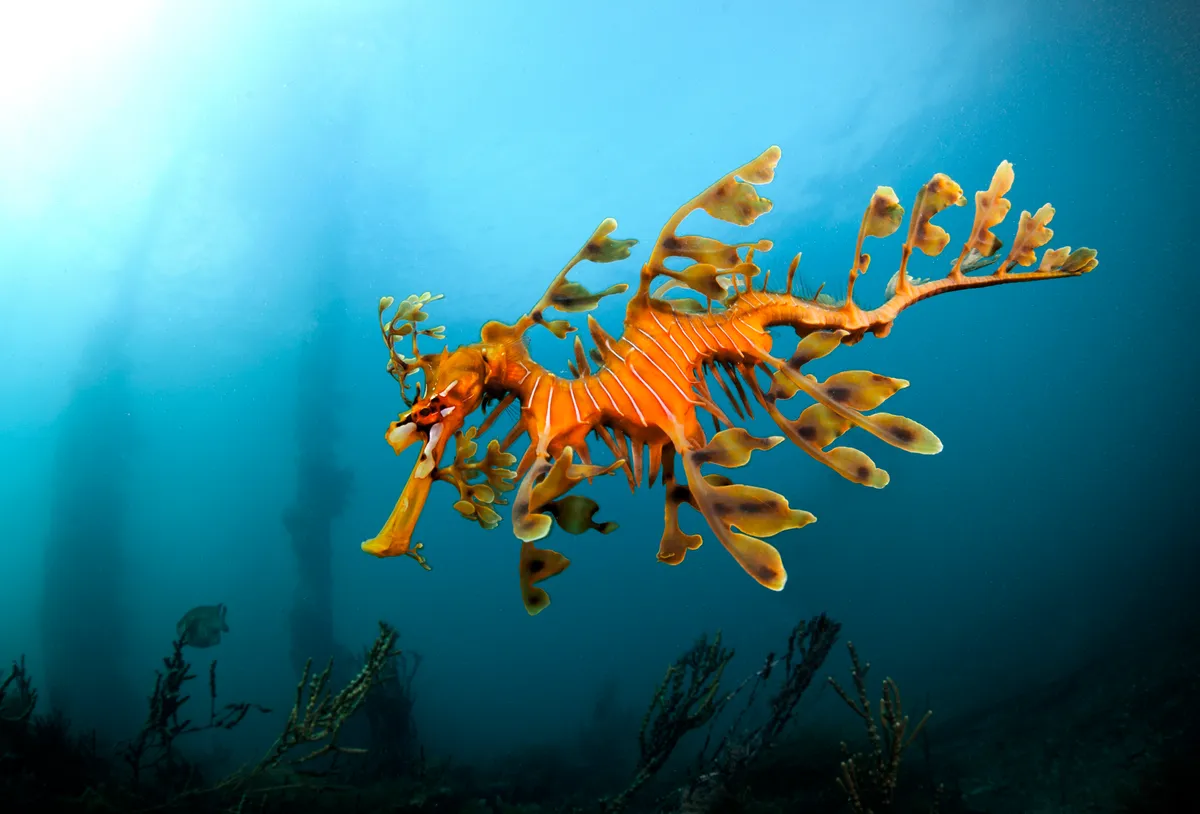
2. Drowzee/Malayan tapir (Tapirus indicus)
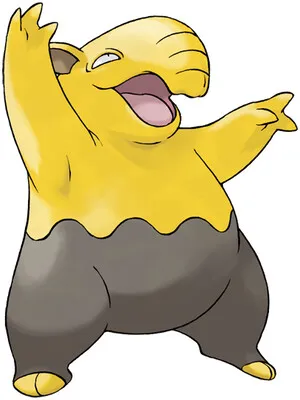
With its short flexible trunk and barrel-shaped body, this Pokémon closely resembles a tapir. Tapirs are not just one species, but a whole family, currently made up of four different species from different geographical locations.
Drowzee is perhaps most similar to the Malayan kind (Tapirus indicus) as it also has a body made of two contrasting colours, although not quite as vibrant! These large mammals stand at about 1m high and are herbivorous, using their prehensile trunks to rip fruit and vegetation off branches.
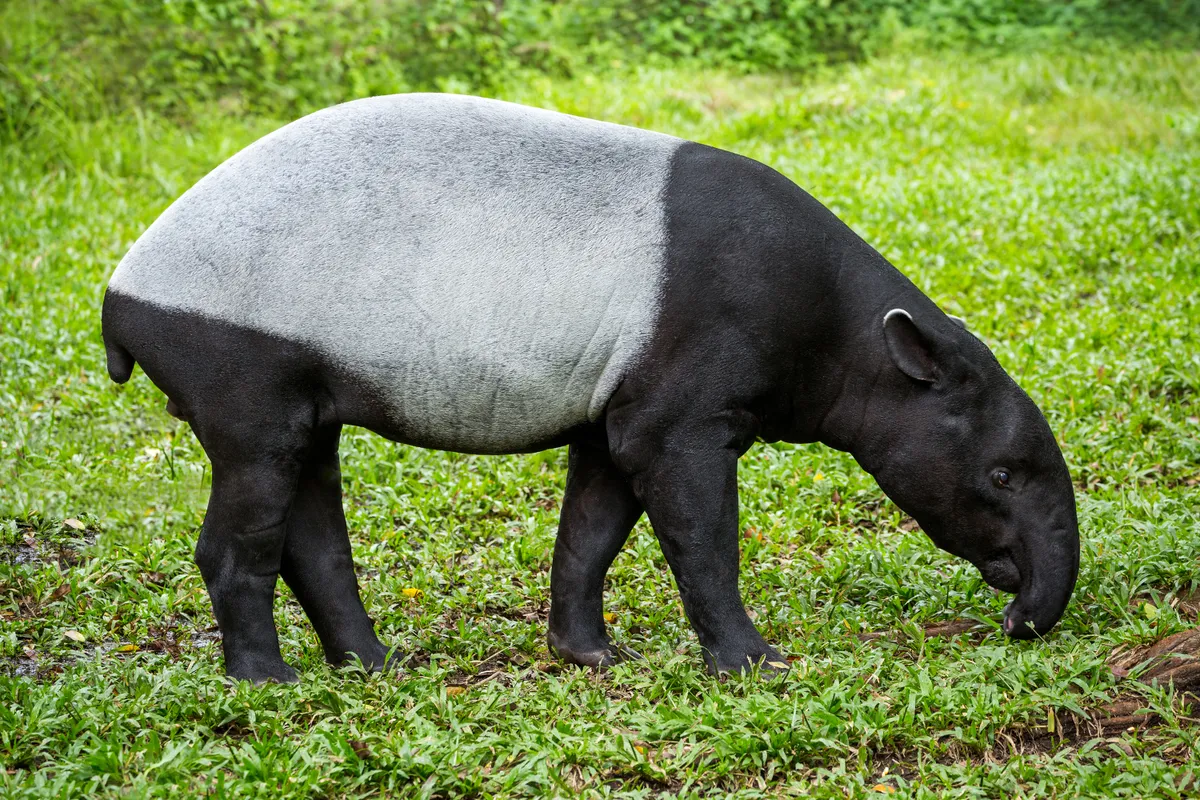
3. Krookodile/gharial (Gavialis gangeticus)
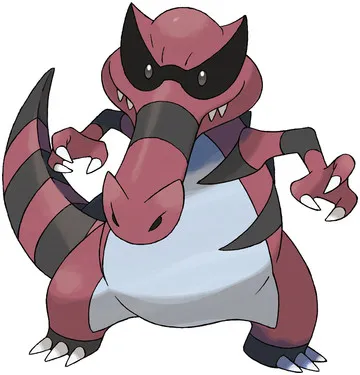
Although Krookodile is based (unsurprisingly) on crocodilians in general, with its long and narrow snout that widens at the tip, it perhaps looks most like a gharial (
).
Gharials, also known as fish-eating crocodiles, can be found in freshwater river systems in India and Nepal. Although odd-looking, their long snout is perfect for catching fish. Instead of stalking their prey like other crocodilians, gharials use these specialised snouts to detect vibrations in the water around them and grab fish as they go by.
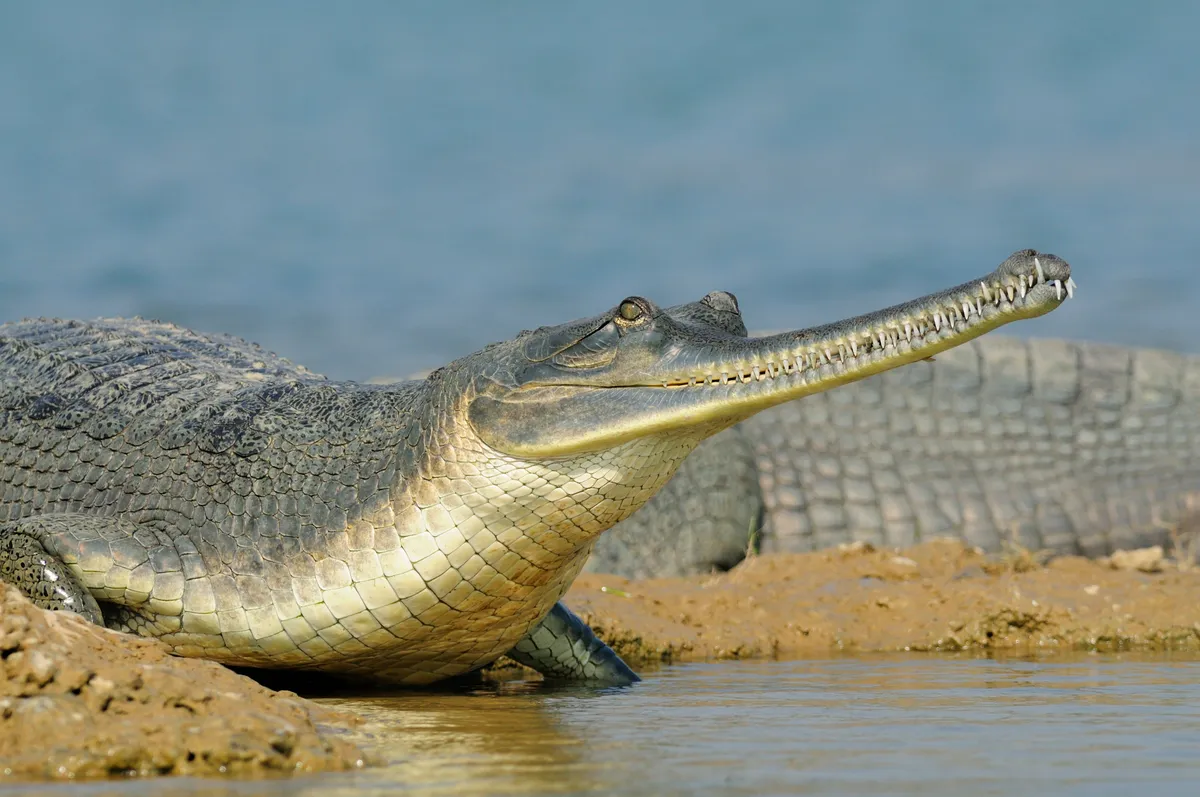
4. Dewgong/dugong (Dugong dugon)
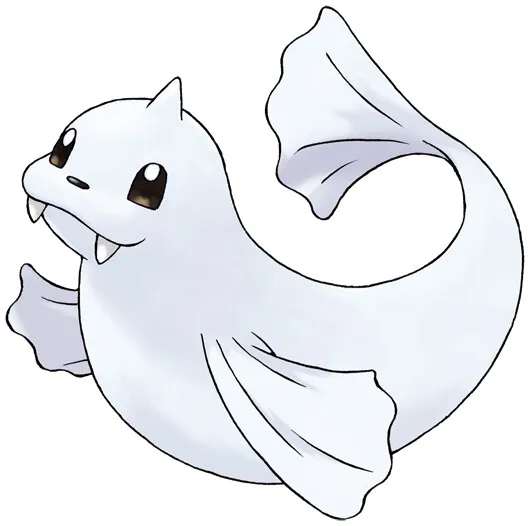
Although it also has attributes similar to a narwhal and a beluga whale, as the name suggests this creature is based on the dugong. Dugongs, also known as sea cows, are plump and sedate marine mammals that can be found munching on seagrass in the warm coastal waters of the Pacific and Indian oceans.
Despite the name, they bear no close relationship to cows, and are close cousins of manatees. The animal and the Pokémon character are really not very much alike, however, as Dewgong instead prefers lower temperatures, living on icebergs in frigid oceans.
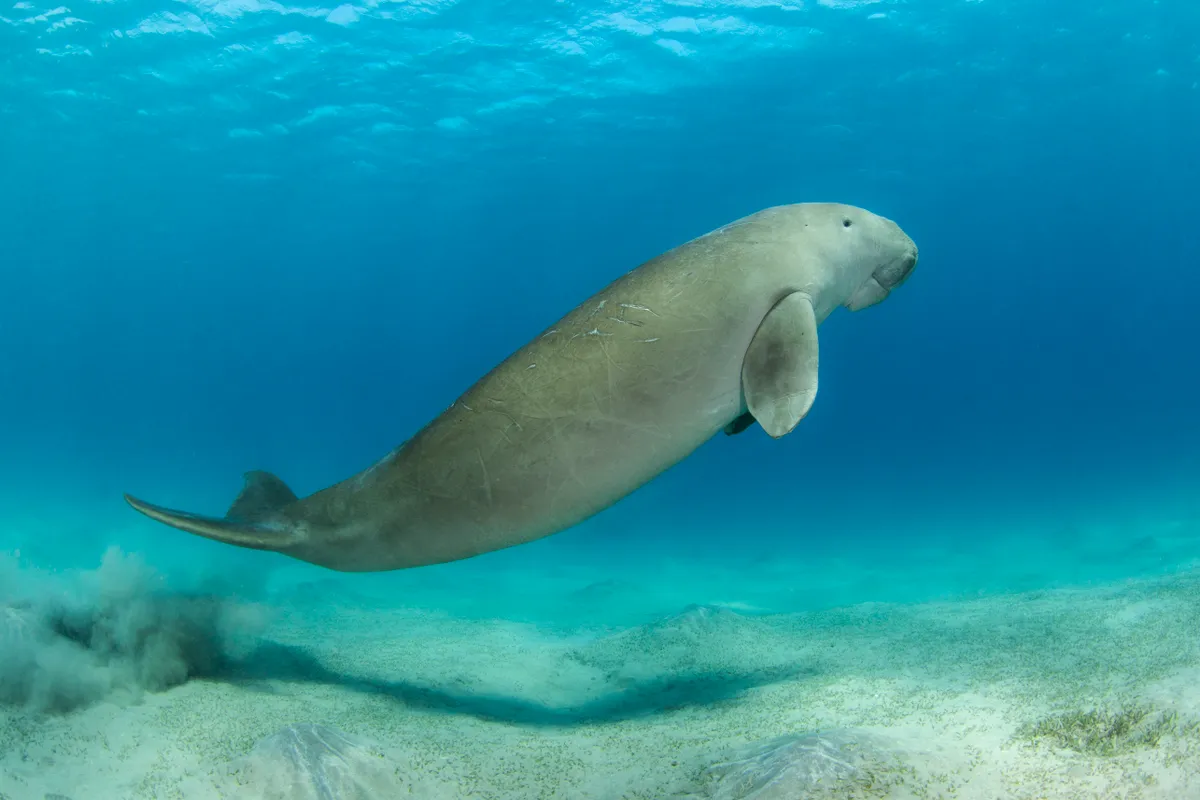
5. Mankey/Barbary macaque (Macaca sylvanus)
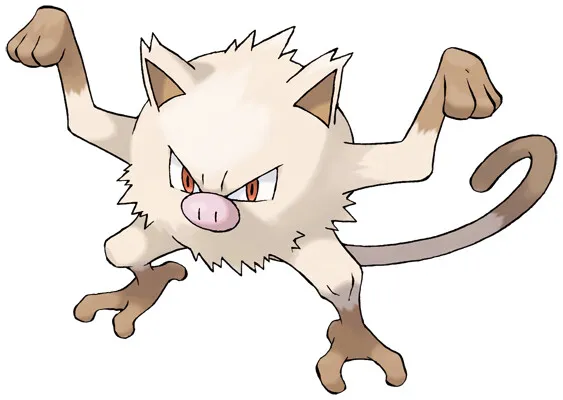
Although perhaps not that similar in appearance, with its odd round body and pig snout, this character does nonetheless seem to be based on a monkey, and some have suggested a Barbary macaque. It is an agile climber, and a social animal, living in large colonies in treetops. If its tail is anything to go by, however, it is more similar to a New World monkey than a macaque.
Like Mankey, New World monkeys have prehensile tails, differentiating them from their African and Asian relatives. They use these tails like an extra hand, grasping branches and vines, and even supporting their full body weight. Mankey also has only three fingers on each hand, however, unlike any primate, who almost all have five… He is hard to classify!
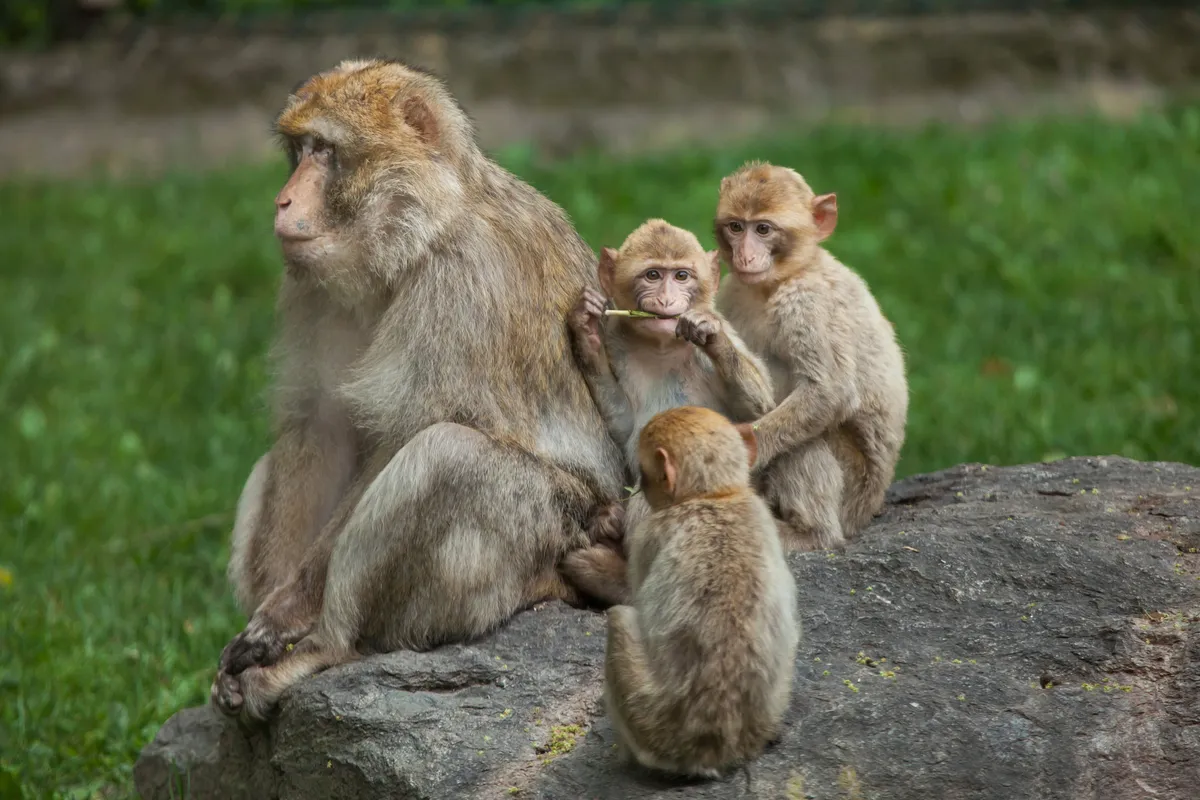
6. Psyduck/platypus (Ornithorhynchus anatinus)
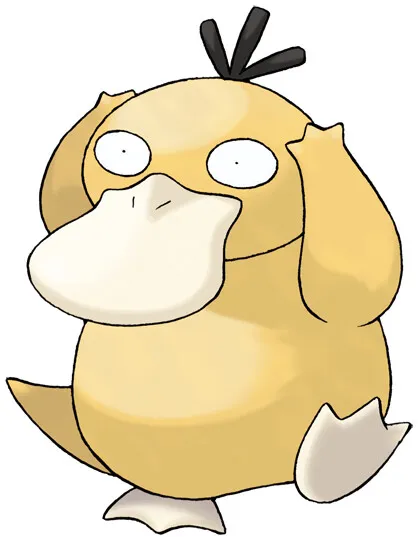
There’s no doubting the inspiration for this Pokémon. After all, what other creature has both hair and a duck-like bill? Like the platypus, this character is also semi-aquatic, being found in freshwater lakes, ponds, and rivers.
Given their singularity and bizarre combination of characteristics, when a platypus specimen was first examined by scientists they actually suspected it to be a fake, a chimera of different animals sewn together. This is perhaps not surprising for an egg-laying mammal with a bill and toxic spurs, and maybe why it inspired a wacky psychic creature that also heavily resembles a rubber duck!
7. Caterpie/Eastern tiger swallowtail caterpillar (Papilio glaucus)
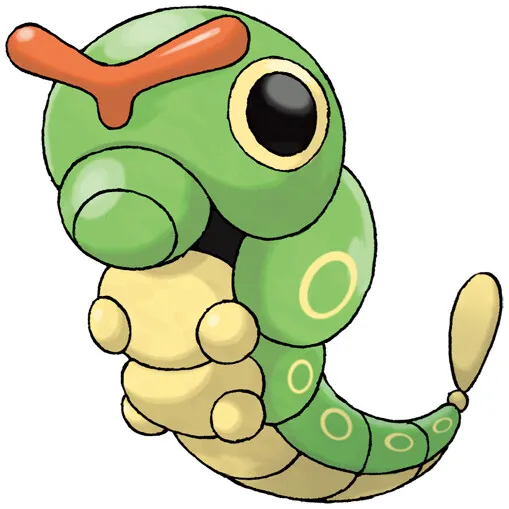
The animal that this Pokémon is based on is particularly fascinating. This is because it displays some striking examples of mimicry. On its thorax it has two coloured spots that very closely resemble eyes. These have evolved to deter any potential predators, who will see these and think they spy a snake! It pairs this with an organ called an osmeterium which flips out when it is threatened, looking like a flickering serpentine tongue and completing the illusion.
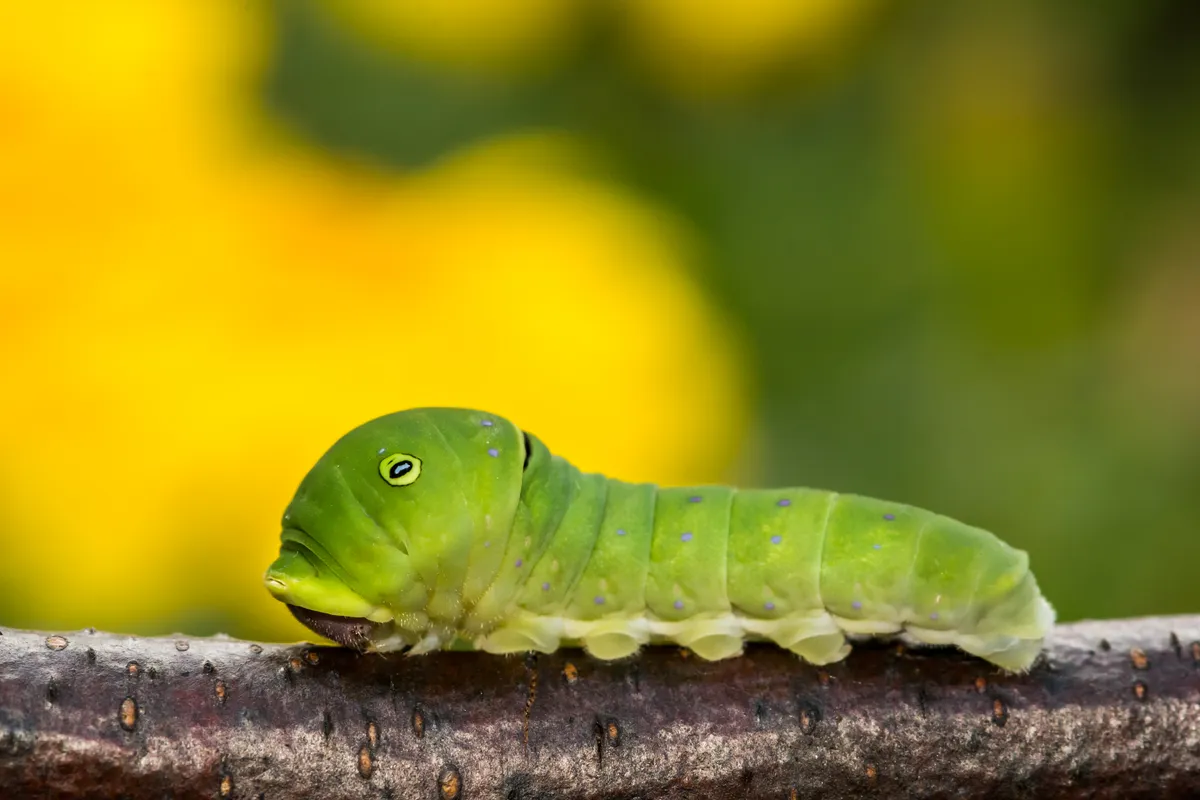
8. Poliwag/translucent tadpoles
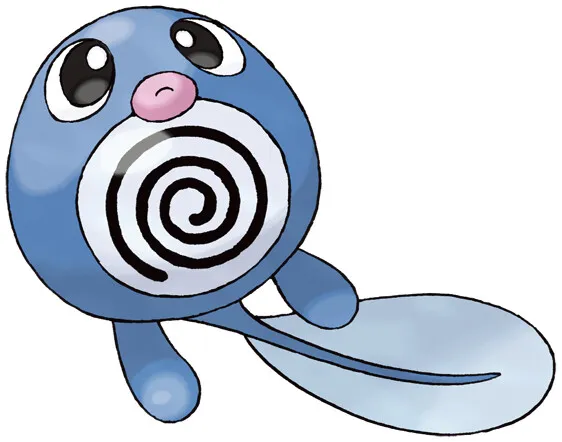
In both its looks and habitat, this Pokémon is close indeed to a translucent tadpole (the tadpoles you're much more likely to see are pictured below). Such see-through tadpoles are not of a particular species of frog or toad, but are in fact albino, or else missing some particular skin pigments.
This gives them a slightly ghostly look and allows you to see their organs at work inside - and this is what the spiral on Poliwag’s underside actually represents, a neatly coiled intestine! Unfortunately, due to their conspicuousness to predators, such tadpoles often do not survive long.
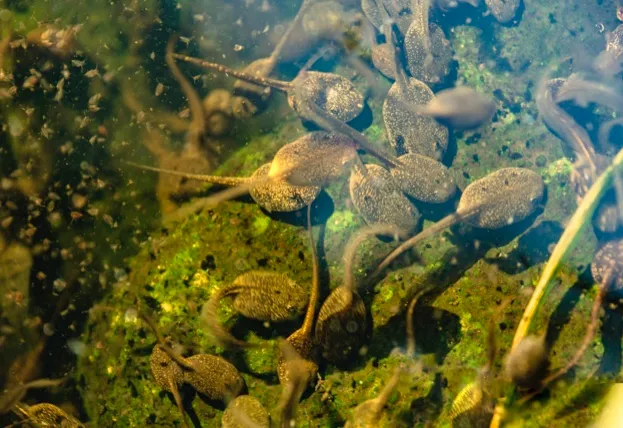
9. Wooper/axolotl (Ambystoma mexicanum)
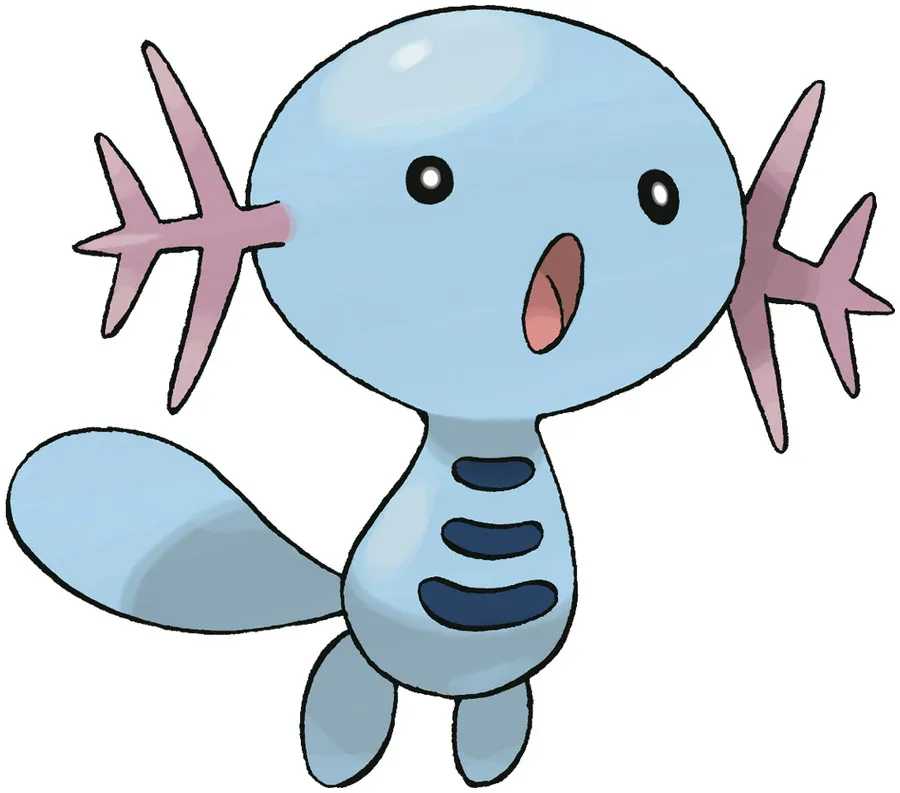
Wooper also takes inspiration from an aquatic, larval-looking animal, axolotls. However, unlike tadpoles, axolotls never undergo metamorphosis - the process of change into a mature, adult form. Axolotls are very unusual, and instead retain their larval features into adulthood, remaining gilled and entirely aquatic.
This is in contrast to other salamander species who in most cases lose their gills when they become mature. Unfortunately these incredible amphibians are becoming vanishingly rare in the wild, due to fishing, pollution and habitat loss.
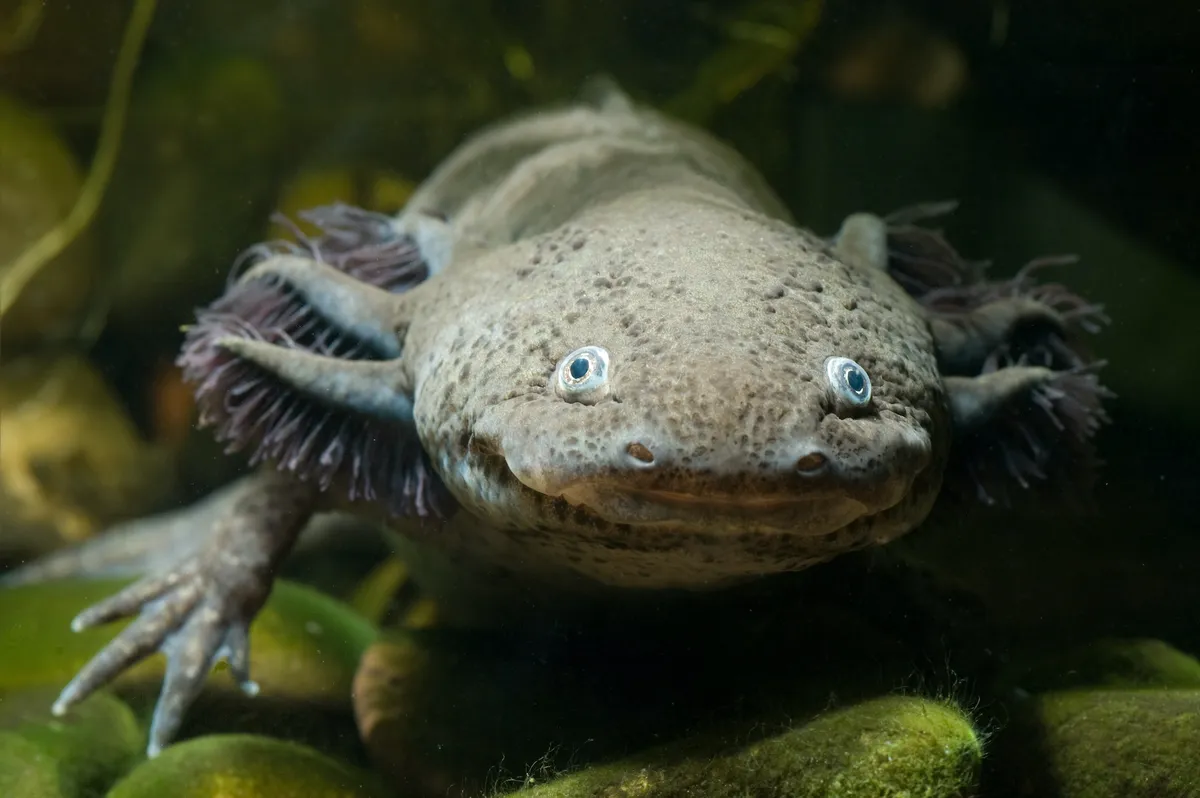
10. Shellos/Loch's chromodoris (Chromodoris lochi)
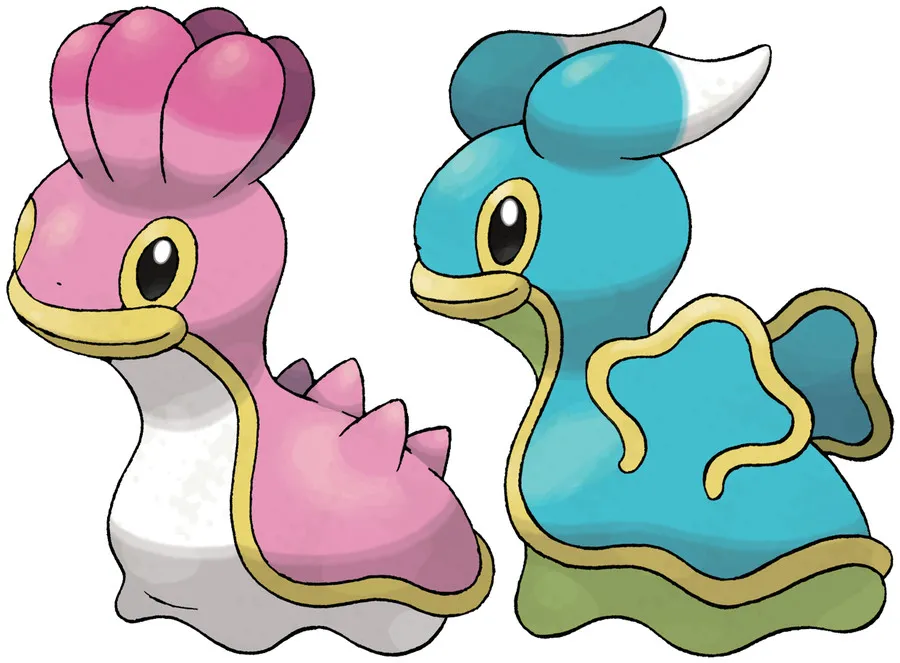
The inspiration for this particularly outlandish looking Pokémon is a similarly bizarre animal - a brightly coloured and patterned sea slug called Loch's chromodoris (
).
Sea slugs, or nudibranchs, are a fascinating collection of animals, being found in an extraordinary variety of colours and forms, from hot pink with a mop of papillae (
) to bright orange with black spots (
). In a fun twist, this last species is sometimes called the Pikachu sea slug due to its resemblance to the beloved Pokémon!
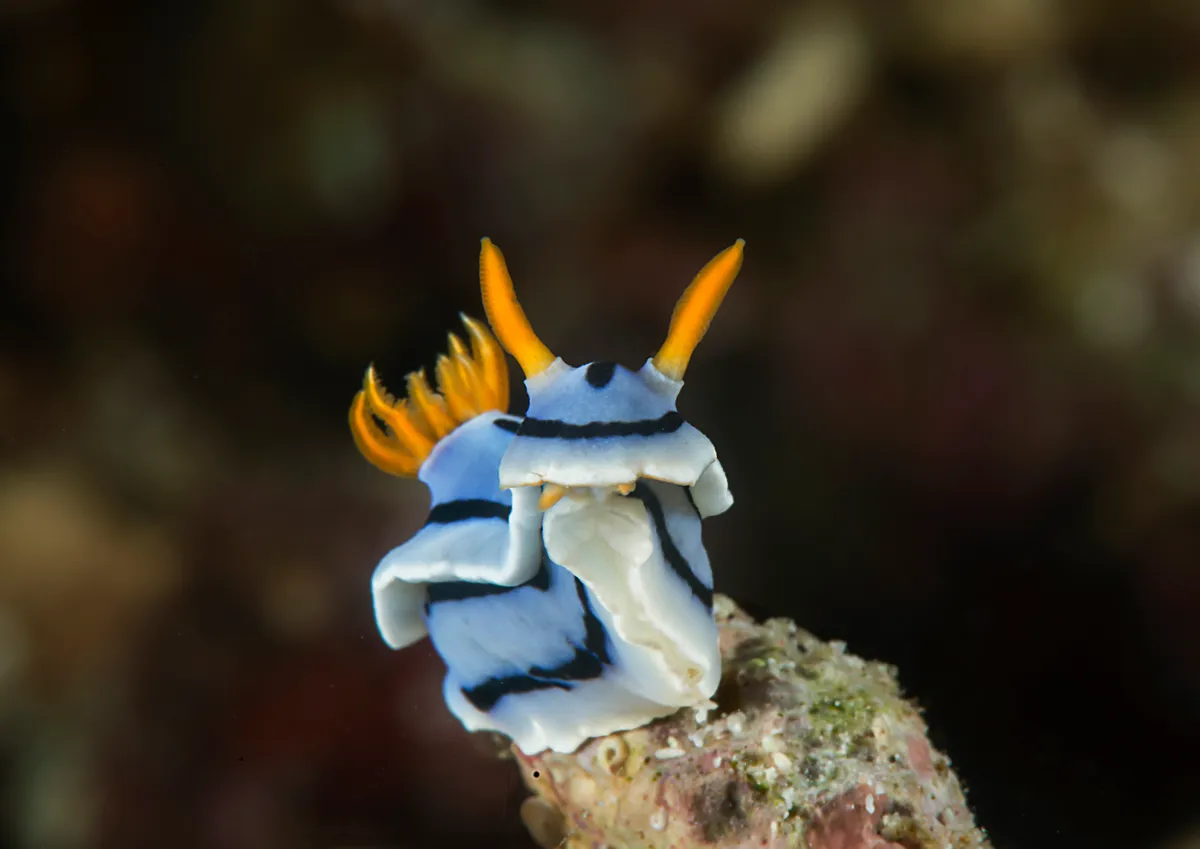
11. Zigzagoon / Raccoon dog (Nyctereutes procyonoides)
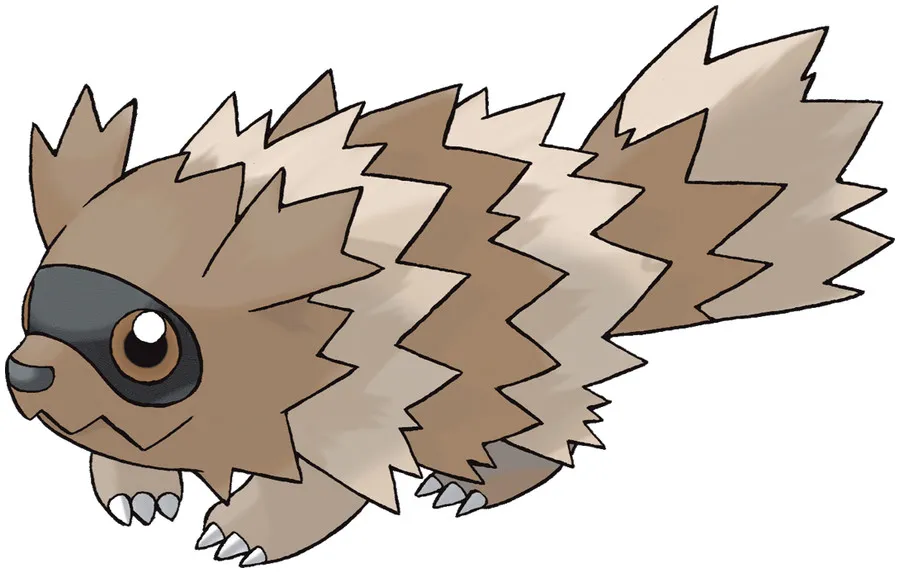
This charming character is based on a similarly sweet-looking species of canid, the Japanese Racoon dog. Found only in Japan, they are closely related to the common raccoon dog (N. procyonoides), and more distantly related to foxes (as opposed to racoons, which are in the Procyonidae family Also known as tanuki, racoon dogs play an important role in Japanese folklore. They appear in tales as mischievous trickers, who can shapeshift with ease, including into humans, and sing songs.
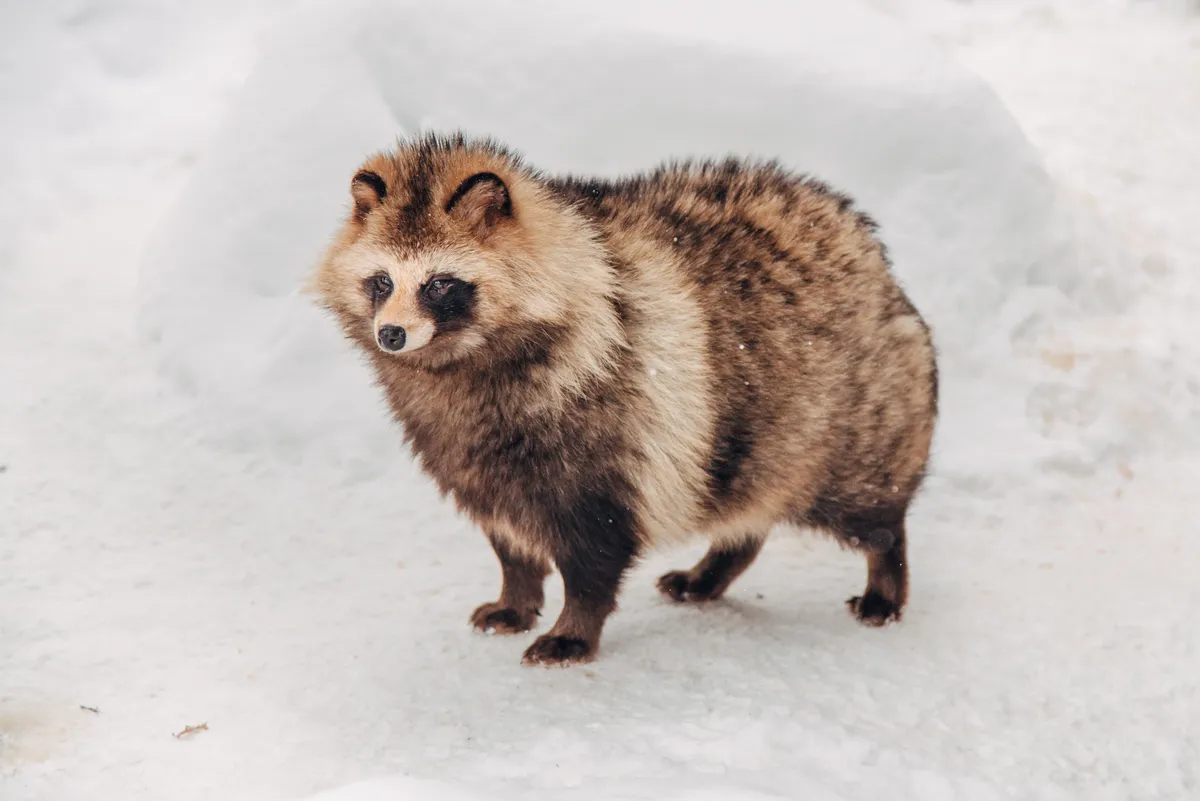
12 Gorebyss/ Long-Nosed Chimaera (Rhinochimaerida family)
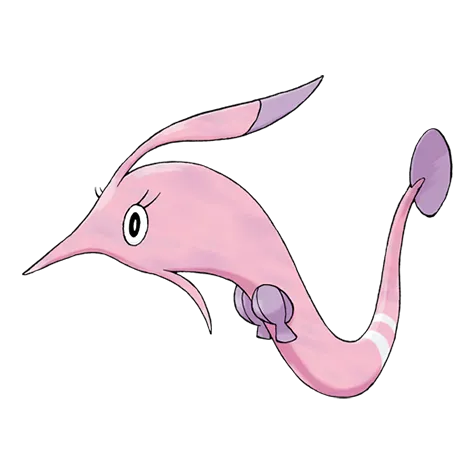
Officially this aquatic Pokémon is said to be based on the snipe eel - a very slender eel with beak-like jaws (reminiscent of a snipe). However, we think it looks much more similar to the Long-Nosed Chimaera. This family of cartilaginous fish can be found in temperate and tropical seas worldwide. They are also sometimes known as spookfish, which seems appropriate given their quite ghostly appearance, and their dark, deep-sea habitat.

13. Stunfisk / Stargazer (Uranoscopidae family)
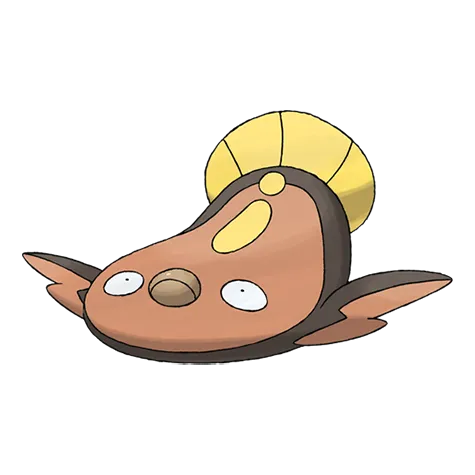
Although perhaps a tad cuter than its ferocious-looking inspiration, with its bug eyes and upward-facing mouth, Stunfisk does bear a resemblance to a Stargazer fish. Stargazers are a family containing about 51 different species, all with their eyes on the top of their heads. To catch prey these fish hide in the sand at the ocean bottom and leap quickly upwards at any that pass overhead. The skyward-facing eyes come in handy for this! Unlike Stunfisk however, they cannot zap prey with a blast of electricity.
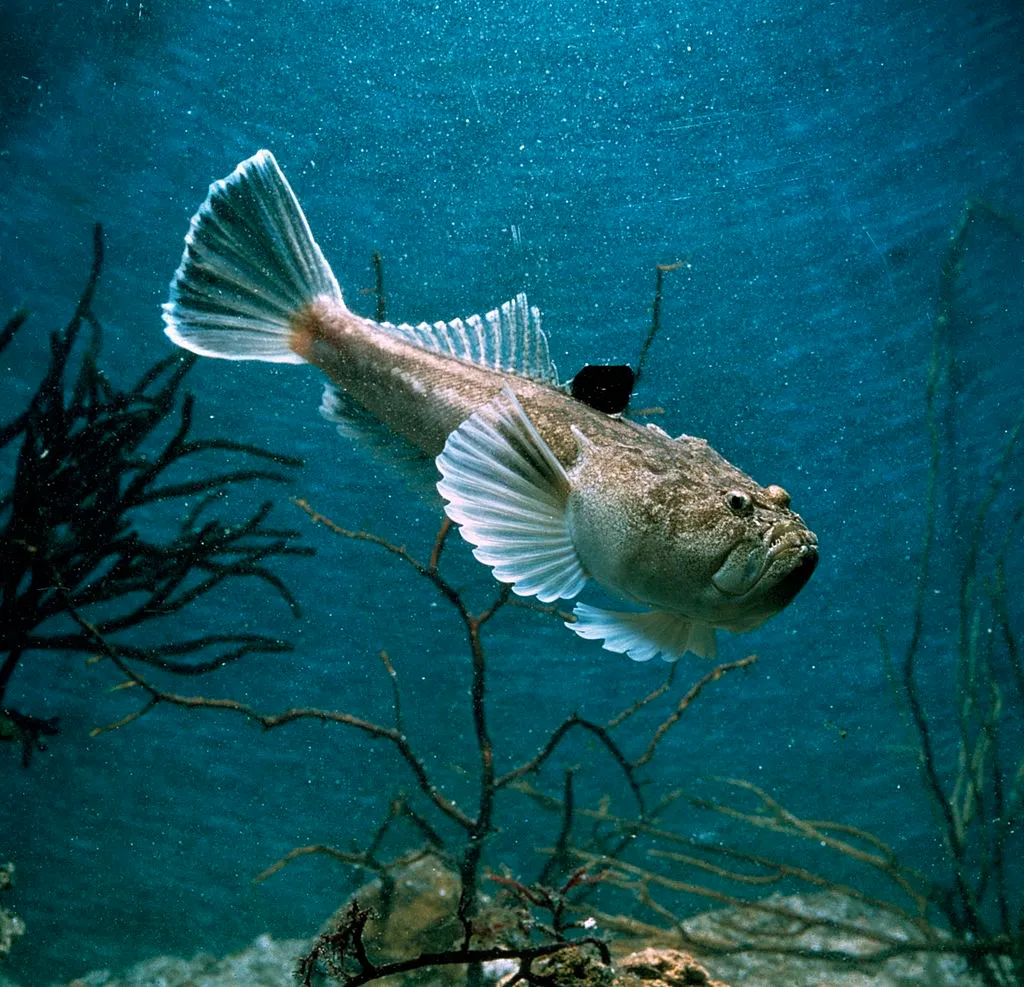
14. Rattata/ Bennett's chinchilla rat (Abrocoma bennettii)
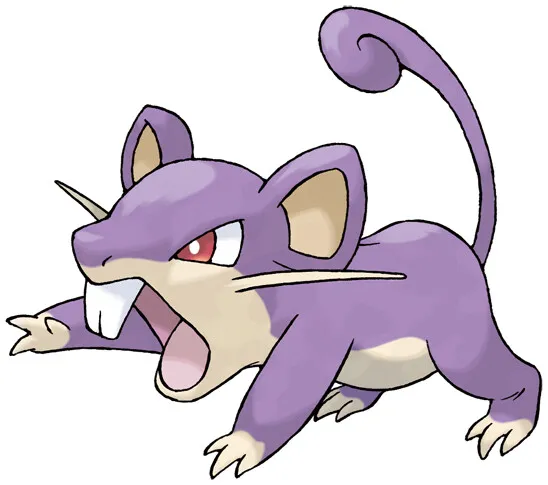
This Pokémon is undoubtedly based on a rat of some kind, but its prominent ears make it look most like a chinchilla rat. Chinchilla rats belong to the Abrocomidae family, a small group of rodents that only has 9 known species. They dwell in tunnels in the Andes mountains and have a diet of seeds, fruits, and nuts. This particular species is found only in Chile and is the largest of the family.
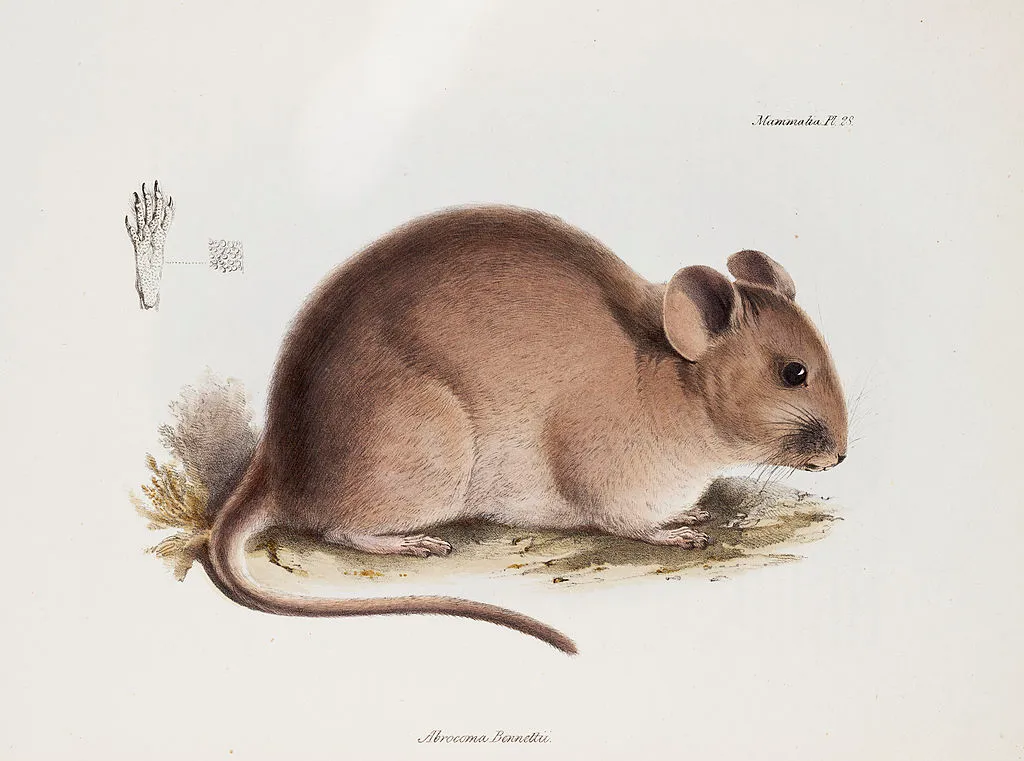
15. Rhydon/ Javan Rhinocerous (Rhinoceros sondaicus)
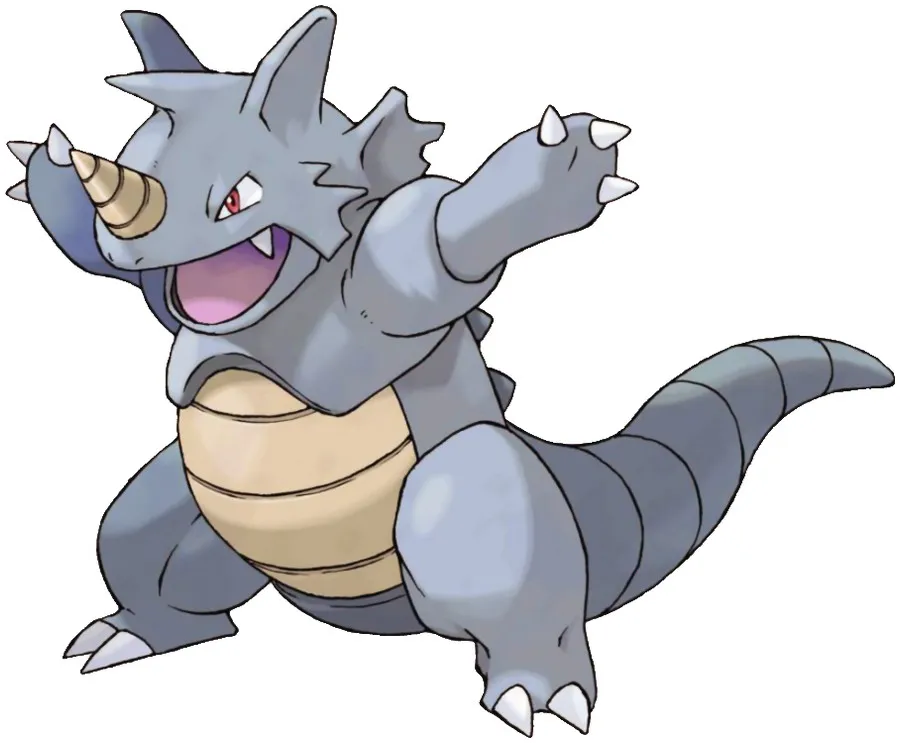
With its horn, bipedal gait, and thick tail, Rhydon appears to be a combination of a rhinoceros and some kind of dinosaur. We think that he looks quite similar to one species of Rhino in particular, the Javan Rhinocerous. Like Rhydon, this rhino only has one horn and thick armour-like skin. It is also one of the most endangered species of animal in the world, with fewer than 100 individuals left, due in the most part to horn poaching.
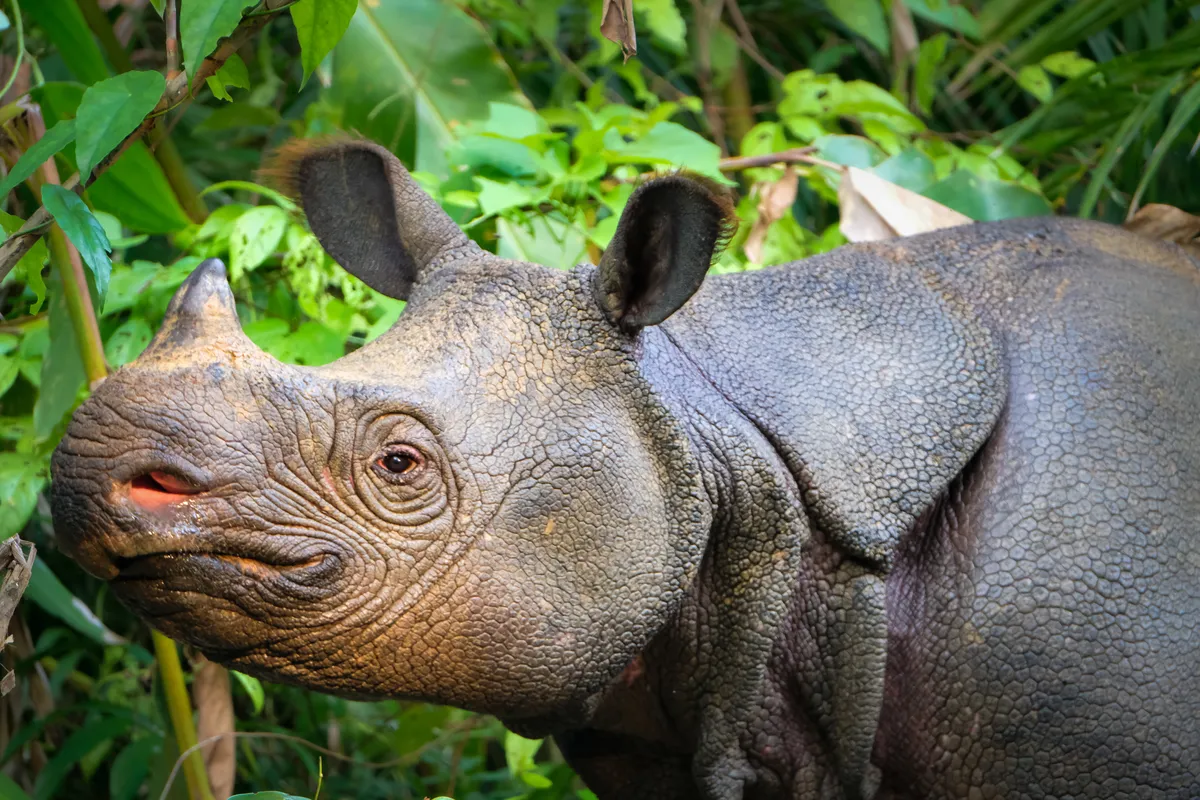
16. Sandshrew/ Sunda Pangolin (Manis javanica)
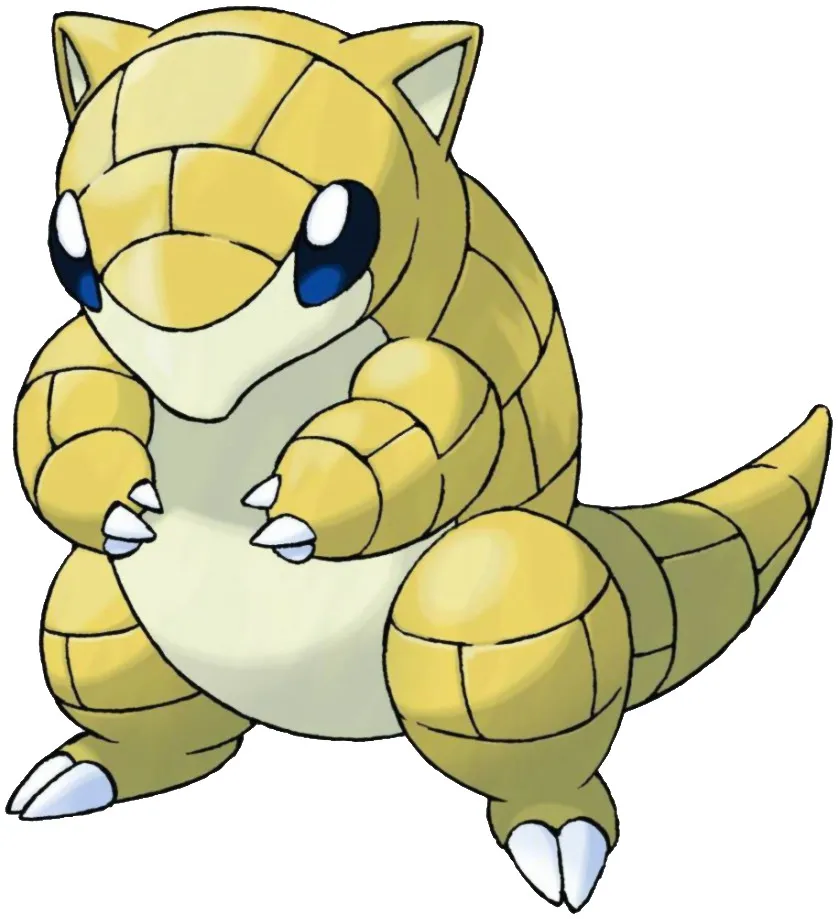
Like, Rhydon, Sandshrew is also sadly based on a highly endangered and extensively poached animal, the Sunda Pangolin. Pangolins are a curious group of Asian and African mammals covered in large protective scales made from keratin (the same stuff as hair and fingernails) - the only mammals with this feature. It is easy to see the resemblence bwteen this and Sandshrew’s tough hide. Like others in this group, Sunda Pangolins are hunted for their skin, scales, and meat, which are used in both clothing and traditional medicine.
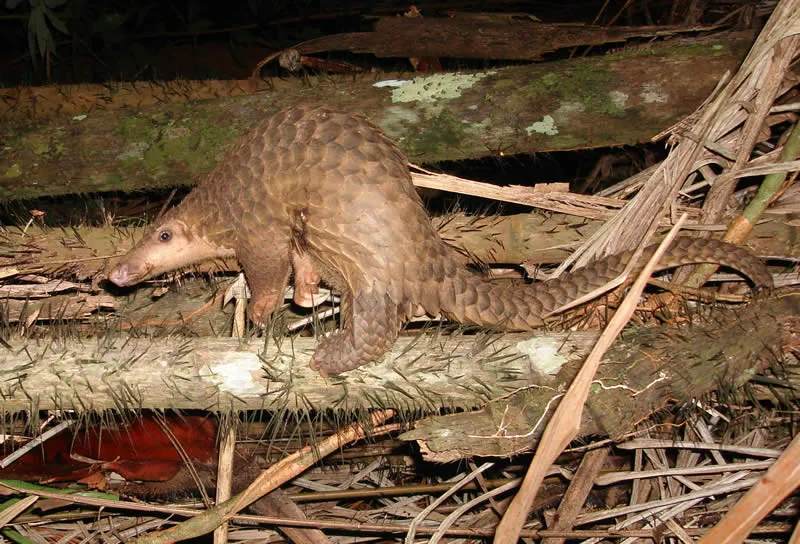
17. Zubat/ Vampire bat (Desmodontinae family)
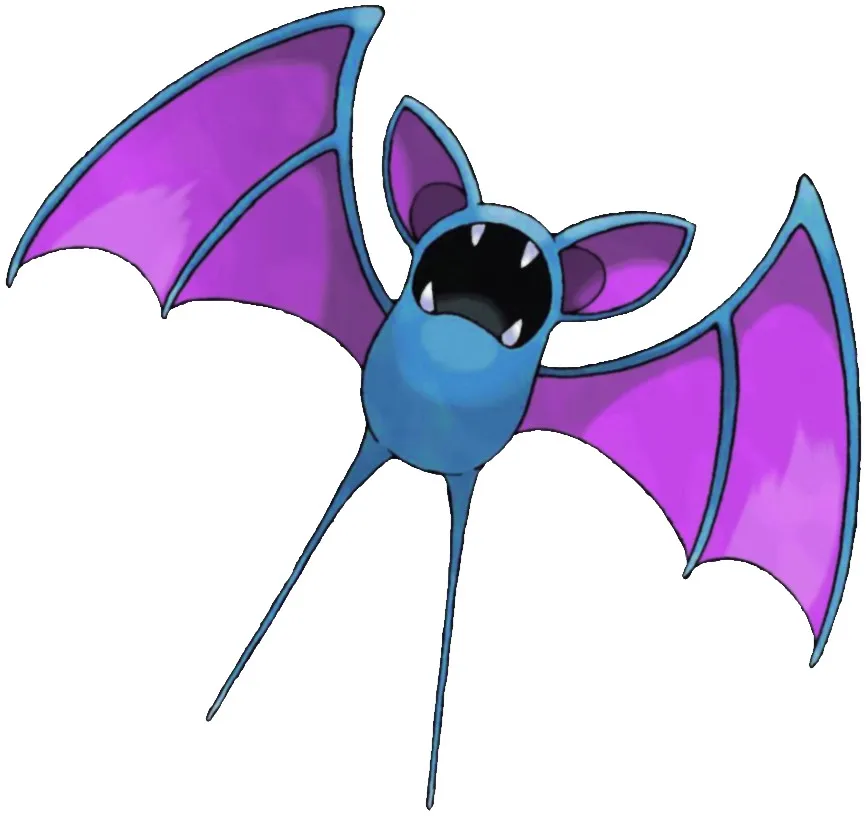
Zubat is, quite clearly, a bat, and with its prominent fangs, we think it looks like the most notorious of the group, the vampire bat. Vampire bats are found in Central and South America, and, as the name suggests, their foodstuff is the blood of other animals, even occasionally humans!
As spooky as this sounds, they do not suck blood through their fangs, and if bitten you are in no danger of turning into one. What they do is to find a warm spot on a sleeping animal, make a small incision, and lap up the blood with their tiny tongues!
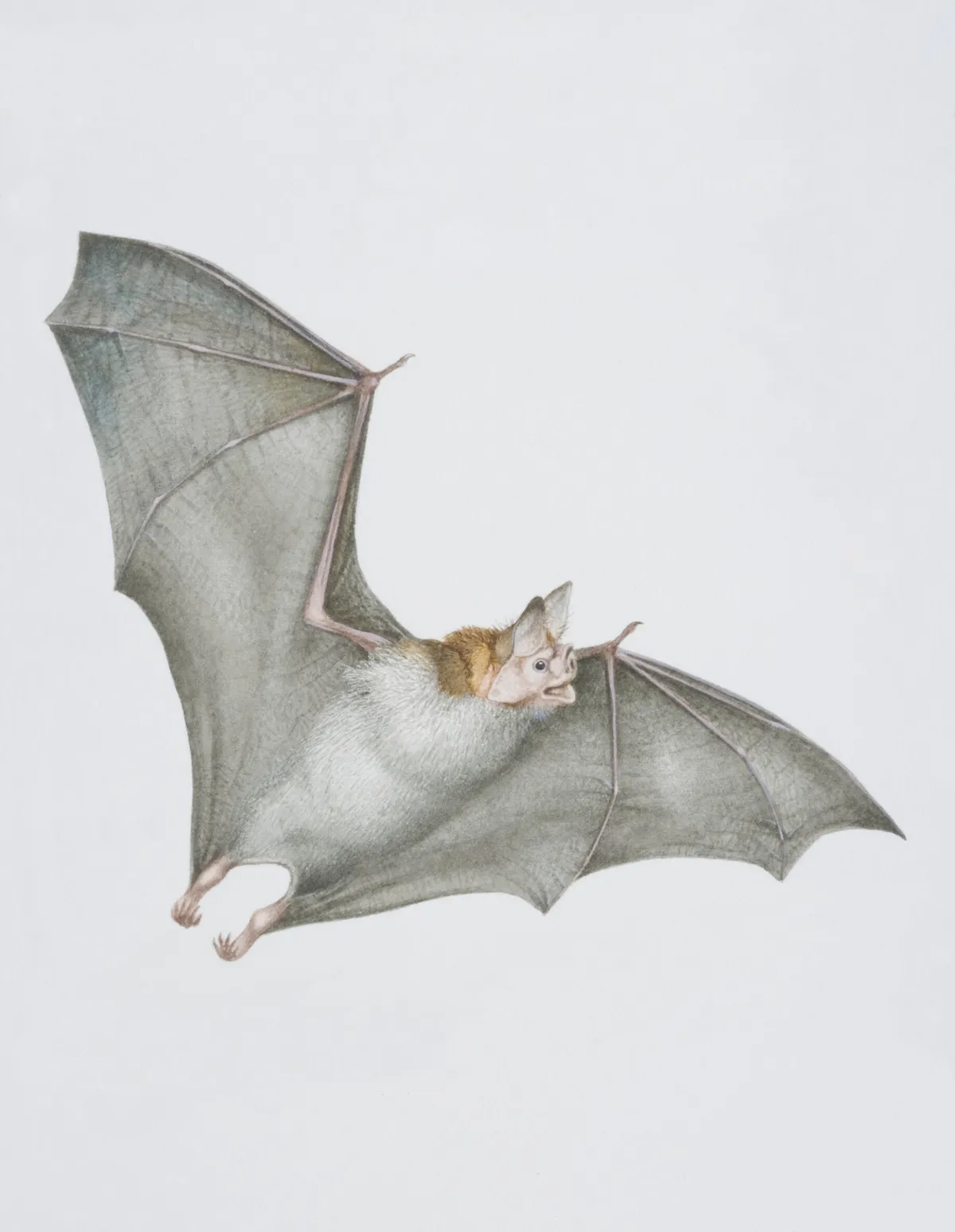
Learn about more animals that feed on blood
18. Tauros/ European Bison (Bison bonasus)
© PokémonTauros has a particularly close resemblance to its inspirational animal, apart from, of course, the three tails… European Bison are one of only two species of bison (also known as buffalo), the other being the American Bison.
They are the heaviest and largest land mammal in Europe, weighing up to a hefty 1000 Kg (just a hair under a ton of bison). Sadly, they were hunted to extinction in the wild in the early 20th Century. They are however now making a comeback due to captive breeding and reintroduction programmes, including in Kent in the UK!
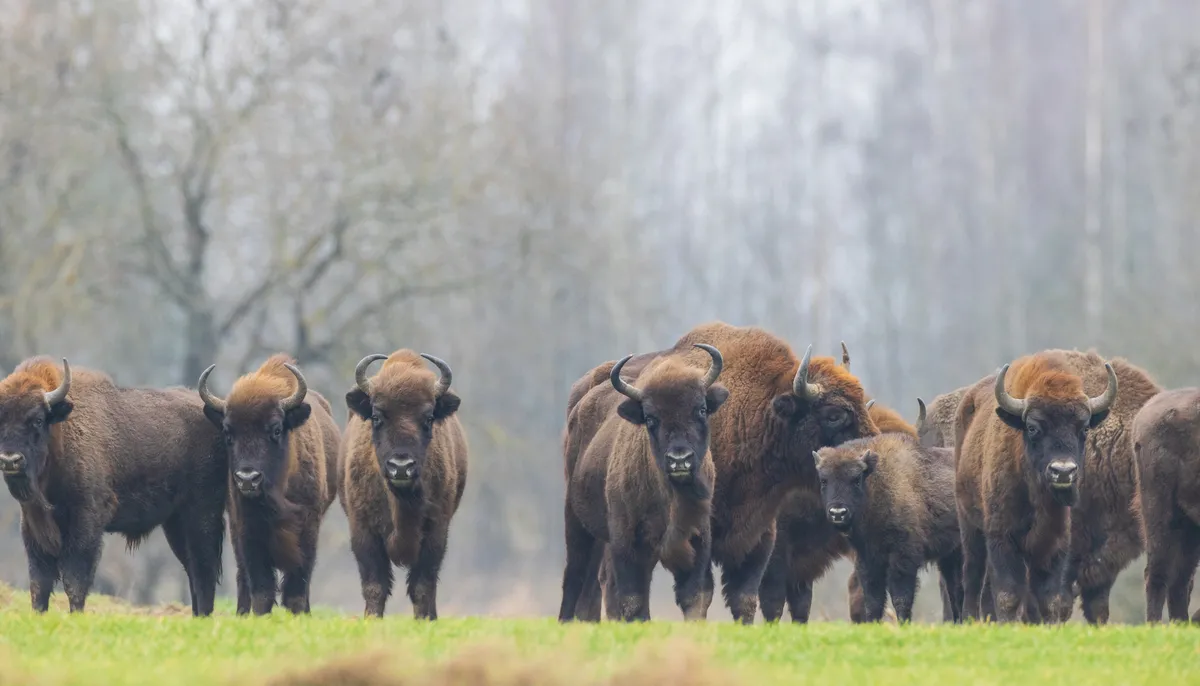
19. Corsola/precious coral (Corallium genus)
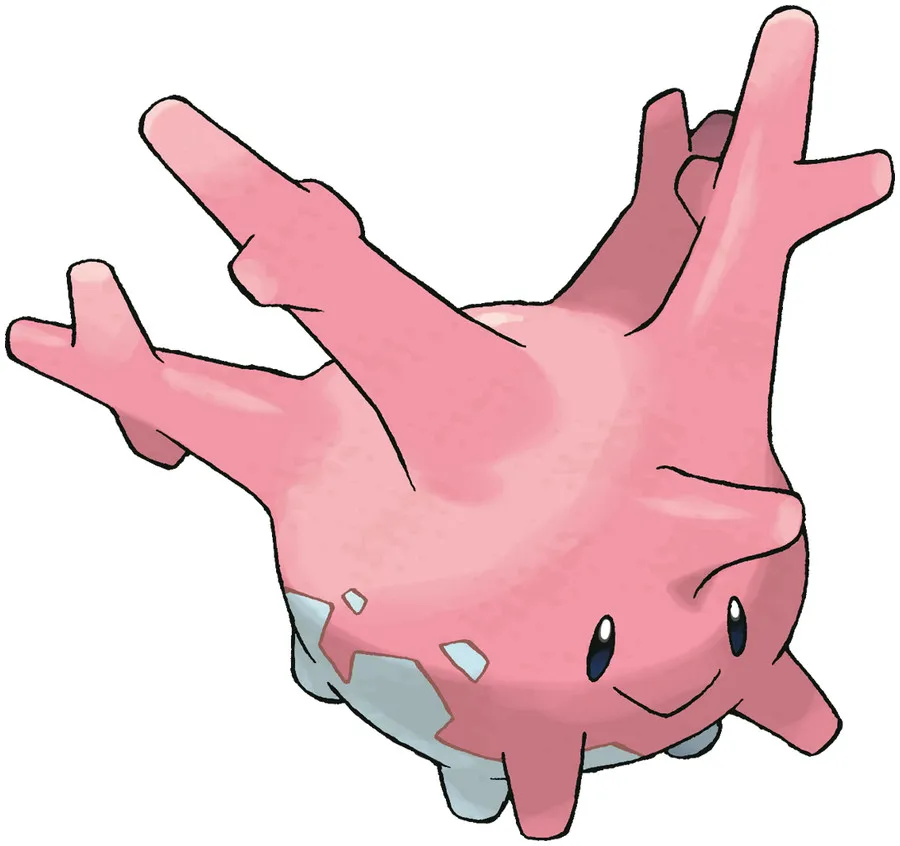
It’s easy to see the resemblance between this Pokémon and the animal it is inspired by, the brightly coloured and branched pink-red precious coral. However, unlike the Pokémon, which has its own smiling face, corals are not just one individual animal. The ‘coral’ that you see is actually a colony of genetically identical individual coral polyps.
Each one of these polyps is a tiny animal, bur they are connected together and depend on each other for survival. Together they can form very large structures, the precious coral for example can grow up to a metre in height.
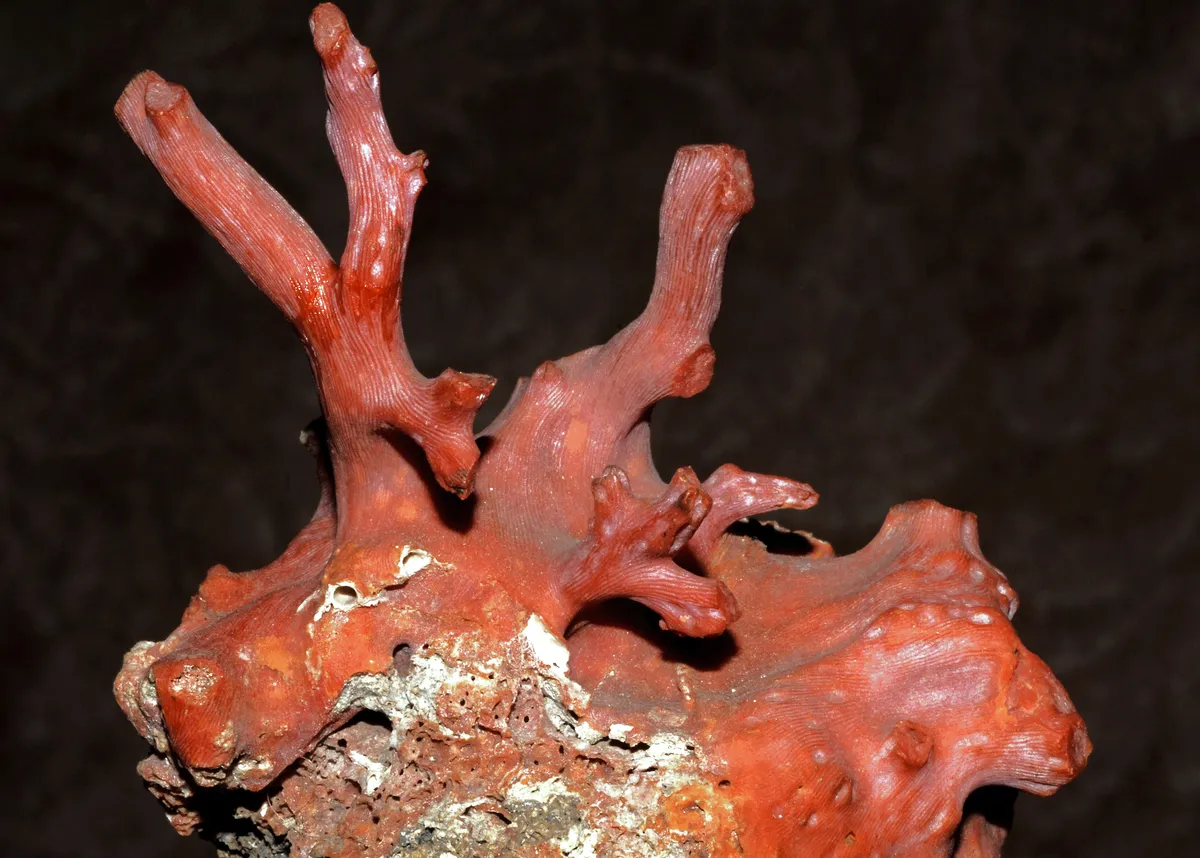
20. Relicanth / Coelacanth
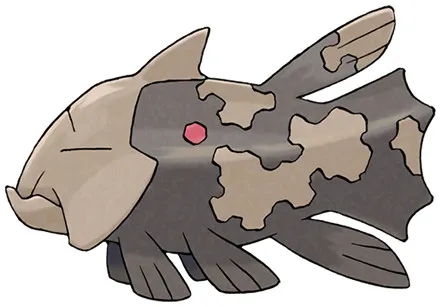
Relicanth is based on a particularly fascinating animal, a very elusive deep-sea fish called a Coelacanth. Coelacanths are known as ‘living fossils’. This is because until relatively recently they were only known from fossils and were thought to have gone extinct along with the dinosaurs!
People had found fossils of these fish dating back to a whopping 410 million years ago, and there was no indication that they were still living. However, a shock discovery came in 1939, 66 million years after its supposed extinction, when a living specimen was found alongside a fisherman’s catch. A group such as this that seemingly disappears from the fossil record only to reappear again almost unchanged is known as a Lazarus taxon.
